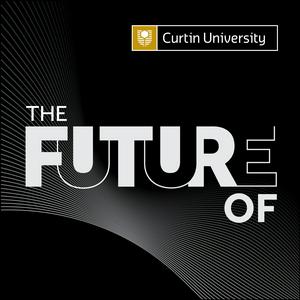A new discovery brings us closer to understanding one of the world's greatest mysteries ... or does it? In this episode, David Karsten is joined by Curtin University Research Associate Anthony Clarke and Professor Chris Kirkland, to discuss their discovery about the origins of Stonehenge’s Altar Stone and its wide-reaching implications. What is Stonehenge and why is it so fascinating? [01:11]The final piece of the provenance puzzle: the Altar Stone [01:23]How did we get here? Cross-continental journeys and big ideas [04:40]Drilling into the research: samples, spectrometers, Stonehenge and Scotland [07:26]A new understanding of communities, technologies and societies of the past [09:33]From conspiracy theories to deep time history, are we any closer to solving the mystery of Stonehenge? [18:20]What this discovery means to our guests and where it leads us [25:25]Learn moreGreat Scott! Stonehenge’s Altar Stone origins reveal advanced ancient BritainStonehenge’s altar stone was carried all the way from north-east Scotland. But how?Stonehenge tale gets weirder as Orkney is ruled out as altar stone origin.Stonehenge.Timescales of Mineral Systems Group.John de Laeter Research Centre.Connect with our guestsMr Anthony Clarke, Postdoctoral Research Associate, Curtin School of Earth and Planetary Sciences, Curtin UniversityMr Anthony Clarke is a Research Associate at Curtin University, investigating the versatility of accessory mineral geochronology in addressing the age and provenance of geological material. In 2024, Anthony gained a PhD in applied geology at Curtin University, publishing A Scottish provenance for the Altar Stone of Stonehenge (DOI: 10.1038/S41586-024-07652-1).LinkedinStaff profileProfessor Chris Kirkland, Professor, Curtin School of Earth and Planetary Sciences, Curtin UniversityProfessor Chris Kirkland is an accomplished academic and geoscience professional with over 10 years of experience teaching and researching at Curtin University, and a further 10 years of laboratory experience. Chris is a Professor at Curtin University and leads the Timescales of Mineral Systems Group. Chris co-authored A Scottish provenance for the Altar Stone of Stonehenge (DOI: 10.1038/S41586-024-07652-1).ProfileStaff ProfileJoin Curtin UniversityThis podcast is brought to you by Curtin University. Curtin is a global university known for its commitment to making positive change happen through high-impact research, strong industry partnerships and practical teaching.Work with usStudy a research degreeStart postgraduate educationGot any questions, or suggestions for future topics?Email
[email protected] mediaXFacebookInstagramYouTubeLinkedInBehind the scenesHost: David KarstenContent Creator and recordist: Caitlin CrowleySocial Media: Celeste FourieProducer: Emilia JolakoskaExecutive Producers: Anita Shore and Matthew SykesFirst Nations AcknowledgementCurtin University acknowledges all First Nations of this place we call Australia and the First Nations peoples connected with our global campuses. We are committed to working in partnership with all Custodians and Owners to strengthen and embed First Nations’ voices and perspectives in our decision-making, now and into the future.MusicOKAY by 13ounce Creative Commons — Attribution-ShareAlike 3.0 Unported — CC BY-SA 3.0 Music promoted by Audio Library.Curtin University supports academic freedom of speech. The views expressed in The Future Of podcast may not reflect those of Curtin University.
